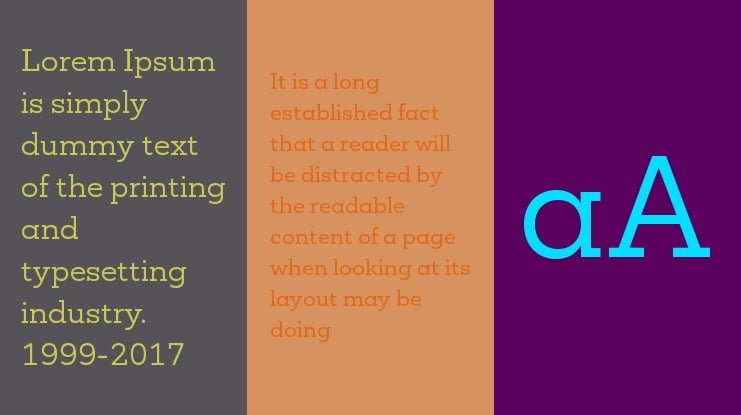mokoko store
We use Your Personal data to provide and improve the Service. By using the Service, You agree to the collection and use of information in accordance with this Privacy. World of horror.
studio@mokoko.ee
Mon - Fri 11 - 19
Sat - Sun 11 - 17
Telliskivi 60a/1, Tallinn
Mokoko was inspired from games like Volfied, Qix, and Airxonix, as well as others that share the same gameplay style. A popular gaming style in the late 1980's, Mokoko looks to resurrect the soul. Fun Facts about the name Mokoko How unique is the name Mokoko? Out of 6,028,151 records in the U.S. Social Security Administration public data, the first name Mokoko was not present. It is possible the name you are searching has less than five occurrences per year. Makoko is a neighbourhood, or localised community, across the 3rd Mainland Bridge located on the coast of mainland Lagos. A third of the community is built on stilts along the lagoon and the rest is on the land. The shanty town of Makoko is located on a lagoon on the edge of the Atlantic Ocean, a stone's throw from the modern buildings that make up Lagos, the biggest town in Nigeria and the main commercial and industrial center.
Our store is closed for holidays on 24-26.12 and 1.01.
On 31.12 we are open 11-15.00.
mokoko studio
by appointment only
Pärnu mnt 154-214, Tallinn
Mokoko Pokemon
company details

OÜ Mokoko Labs
reg. no. 12511007
VAT EE101823911

Mokoko is a designer leather goods studio with a focus on inventive constructions and clever details. All products are made in our studio in Tallinn, out of certified vegetable tanned leathers from Italy.
Mokoko is a member of Responsible Business Forum of Estonia.

Informal Settlement | |
| Coordinates: 6°29′44″N3°23′39″E / 6.49556°N 3.39417°ECoordinates: 6°29′44″N3°23′39″E / 6.49556°N 3.39417°E | |
| Country | Nigeria |
|---|---|
| State | Lagos State |
| City | Lagos |
| LGA | Lagos Mainland |
| Settled | 19th century |
| Population | |
| • Total | 85,840 |
| Time zone | UTC+1 |
Makoko is a neighbourhood, or localised community, across the 3rd Mainland Bridge located on the coast of mainland Lagos. A third of the community is built on stilts along the lagoon and the rest is on the land. The waterfront part of the community is largely harboured by the Egun people who migrated from Badagary and Republic of Benin and whose main occupation is fishing. In July 2012, the Lagos State government ordered that some of the stilts beyond the power-lines be brought down without proper notice. This led to the destruction of several stilts on the Iwaya/Makoko waterfront and many families were rendered homeless.[1]
History[edit]
Mokokoma Mokhonoana
Established in the 19th century, much of Makoko rests in structures constructed on stilts above Lagos Lagoon.[2][3] Makoko is a neighbouring community to Iwaya on the waterfront and Oko Baba.[4]In July 2012, Lagos State government under the governorship of Babatunde Fashola ordered that the stilts on the Iwaya/Makoko waterfront be demolished and dozens of stilts were demolished within 72 hours of notice to the residents. Nearly 3,000 people lost their homes to the demolition exercise.[1][5][6][7]Two months after the partial demolition, a Serac housing affiliate known as the Urban Spaces Innovation developed a regeneration plan for Makoko that would bring the community together with academics, non-profits, and international consultants. The plan was submitted to the Lagos State Ministry of Urban and Physical Planning in January 2014.[7]
Makoko is sometimes referred to as the 'Venice of Africa'.[8] Its population is considered to be 85,840; however, the area was not officially counted as part of the 2007 census and the population has been estimated to be much higher.[2]

OÜ Mokoko Labs
reg. no. 12511007
VAT EE101823911
Mokoko is a designer leather goods studio with a focus on inventive constructions and clever details. All products are made in our studio in Tallinn, out of certified vegetable tanned leathers from Italy.
Mokoko is a member of Responsible Business Forum of Estonia.
Informal Settlement | |
| Coordinates: 6°29′44″N3°23′39″E / 6.49556°N 3.39417°ECoordinates: 6°29′44″N3°23′39″E / 6.49556°N 3.39417°E | |
| Country | Nigeria |
|---|---|
| State | Lagos State |
| City | Lagos |
| LGA | Lagos Mainland |
| Settled | 19th century |
| Population | |
| • Total | 85,840 |
| Time zone | UTC+1 |
Makoko is a neighbourhood, or localised community, across the 3rd Mainland Bridge located on the coast of mainland Lagos. A third of the community is built on stilts along the lagoon and the rest is on the land. The waterfront part of the community is largely harboured by the Egun people who migrated from Badagary and Republic of Benin and whose main occupation is fishing. In July 2012, the Lagos State government ordered that some of the stilts beyond the power-lines be brought down without proper notice. This led to the destruction of several stilts on the Iwaya/Makoko waterfront and many families were rendered homeless.[1]
History[edit]
Mokokoma Mokhonoana
Established in the 19th century, much of Makoko rests in structures constructed on stilts above Lagos Lagoon.[2][3] Makoko is a neighbouring community to Iwaya on the waterfront and Oko Baba.[4]In July 2012, Lagos State government under the governorship of Babatunde Fashola ordered that the stilts on the Iwaya/Makoko waterfront be demolished and dozens of stilts were demolished within 72 hours of notice to the residents. Nearly 3,000 people lost their homes to the demolition exercise.[1][5][6][7]Two months after the partial demolition, a Serac housing affiliate known as the Urban Spaces Innovation developed a regeneration plan for Makoko that would bring the community together with academics, non-profits, and international consultants. The plan was submitted to the Lagos State Ministry of Urban and Physical Planning in January 2014.[7]
Makoko is sometimes referred to as the 'Venice of Africa'.[8] Its population is considered to be 85,840; however, the area was not officially counted as part of the 2007 census and the population has been estimated to be much higher.[2]
Gallery[edit]
Detail of map of Lagos, 1962, showing Makoko and Lagos Mainland
Makoko, 2010
A landscape photo of Makoko, 2017.
Fishes caught at Makoko
Fish roasting in Makoko
After fish roasting in Makoko
See also[edit]
References[edit]
- ^ ab'Destroying Makoko'. The Economist. 18 August 2012.
- ^ abThis Day (1 May 2009). 'Makoko Residents And Their Unwanted Guest'. Africa News.
- ^Cohen, Roger (20 July 1998). 'Nigerian Slum's Filth Is a World Away From Capital's Glitter'. The New York Times.
- ^UN Integrated Regional Information Networks (5 September 2006). 'Lagos, the mega-city of slums'. Africa News. Retrieved 19 September 2009.
- ^'Lagos Makoko slums knocked down in Nigeria'. BBC. 17 July 2012. Retrieved 28 February 2015.
- ^'Nigeria: Day After Makoko and Abonema - Frustration of a Homeless Nation'. allAfrica.com. Retrieved 28 February 2015.
- ^ abTolu Ogunlesi, 'Inside Makoko: danger and ingenuity in the world's biggest floating slum', The Guardian, 23 February 2016.
- ^Soni Methu (24 December 2014). 'Postcards from home: documenting Nigeria's floating community'. CNN. Retrieved 10 October 2015.
External links[edit]
| Wikimedia Commons has media related to Makoko. |
- Iwan Baan (26 May 2013). 'School at Sea'. New York Times. Photos of Makoko.
